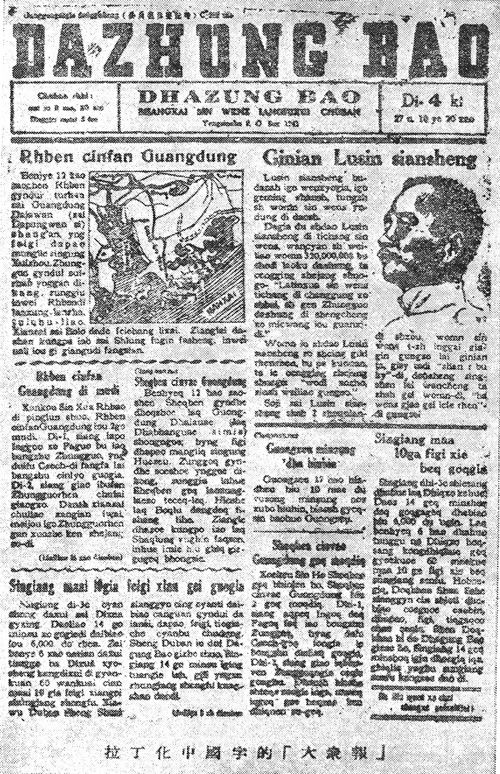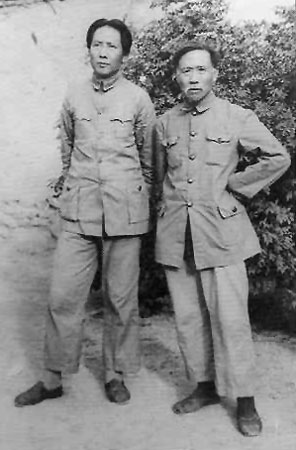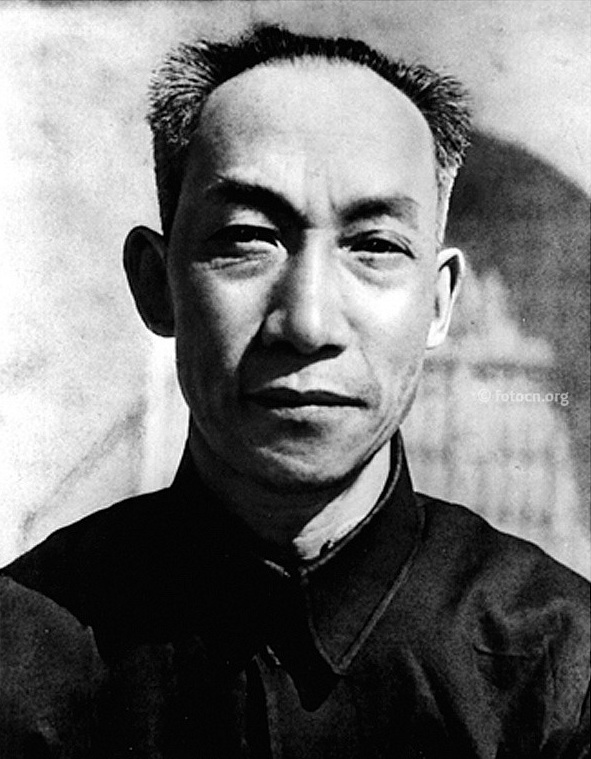|
Latinxua Sinwenz
Latinxua Sin Wenz () is a historical set of romanizations for Chinese. Promoted as a revolutionary reform to combat illiteracy and replace Chinese characters, Sin Wenz distinctively does not indicate tones, for pragmatic reasons and to encourage the use of everyday colloquial language. Beifangxua Latinxua Sin Wenz (), for Mandarin Chinese, was the original iteration, and a number of variations for various varieties of Chinese were developed by regional Sin Wenz associations. Latinxua is historically notable as being the first romanization system used in place of Chinese characters by native Chinese speakers. It was originally developed by groups of Chinese and Russian scholars in the Soviet Union and used by Chinese expatriates there until the majority of them left the Soviet Union. Later, it was revived for some time in Northern China where it was used in over 300 publications before its usage was ended by the People's Republic of China. History and development The work tow ... [...More Info...] [...Related Items...] OR: [Wikipedia] [Google] [Baidu] |
Romanization
In linguistics, romanization is the conversion of text from a different writing system to the Latin script, Roman (Latin) script, or a system for doing so. Methods of romanization include transliteration, for representing written text, and transcription (linguistics), transcription, for representing the spoken word, and combinations of both. Transcription methods can be subdivided into ''phonemic orthography, phonemic transcription'', which records the phonemes or units of semantic meaning in speech, and more strict ''phonetic transcription'', which records speech sounds with precision. Methods There are many consistent or standardized romanization systems. They can be classified by their characteristics. A particular system's characteristics may make it better-suited for various, sometimes contradictory applications, including document retrieval, linguistic analysis, easy readability, faithful representation of pronunciation. * Source, or donor language – A system may be tai ... [...More Info...] [...Related Items...] OR: [Wikipedia] [Google] [Baidu] |
Gwoyeu Romatzyh
Gwoyeu Romatzyh ( ; GR) is a system for writing Standard Chinese using the Latin alphabet. It was primarily conceived by Yuen Ren Chao (1892–1982), who led a group of linguists on the National Languages Committee in refining the system between 1925 and 1926. In September 1928, it was adopted by the Republic of China (1912–1949), Republic of China as the national romanization system for Standard Chinese. GR indicates the four tones of Standard Chinese by varying the spelling of syllables, a method originally proposed by team member Lin Yutang (1895–1976). Distinct sets of spellings are assigned to syllables in GR according to particular rules. This differs from approaches used by other systems to denote tones, like the Tone number, numerals used by the earlier Wade–Giles system, or the diacritics used by the later Hanyu Pinyin system. Despite support from linguists both in China and overseas—including some early proponents who hoped it would eventually replace Chinese ... [...More Info...] [...Related Items...] OR: [Wikipedia] [Google] [Baidu] |
Lu Xun
Lu Xun ( zh, c=魯迅, p=Lǔ Xùn, ; 25 September 188119 October 1936), pen name of Zhou Shuren, born Zhou Zhangshou, was a Chinese writer. A leading figure of modern Chinese literature, he wrote in both vernacular and literary Chinese as a novelist, literary critic, essayist, poet, translator and political commentator, known for his satirical, acerbic tone and critical reflections on Chinese history and culture. Lu was born into a declining family of landlords and scholar-officials in Shaoxing, Zhejiang. Although he initially aspired to take the imperial examinations, his family’s limited financial means compelled him to attend government-funded schools that offered a "Western-style education." After graduation, Lu pursued medical studies at Tohoku University in Japan but eventually dropped out, turning his attention to literature. Financial difficulties forced his return to China, where he taught at various secondary schools and colleges before taking a position at the Min ... [...More Info...] [...Related Items...] OR: [Wikipedia] [Google] [Baidu] |
Guo Moruo
Guo Moruo (November 16, 1892 – June 12, 1978), courtesy name Dingtang, was a Chinese author, poet, historian, archaeologist, and government official. Biography Family history Guo Moruo, originally named Guo Kaizhen, was born on November 10 or 16, in the small town of Shawan District, Shawan, located on the Dadu River some southwest from what was then called the city of Jiading (Lu) (Chia-ting (Lu), ), and now is the central urban area of the prefecture level city of Leshan in Sichuan Province. At the time of Guo's birth, Shawan was a town of some 180 families.David Tod Roy, "Kuo Mo-jo: The Early Years". Harvard University Press, Cambridge, Massachusetts. 1971. No ISBN. Guo's father's ancestors were Hakka people, Hakkas from Ninghua County in Tingzhou Prefecture, near the western border of Fujian. They moved to Sichuan in the second half of the 17th century, after Sichuan had lost much of its population to the rebels/bandits of Zhang Xianzhong ( 1605–1647). According to fami ... [...More Info...] [...Related Items...] OR: [Wikipedia] [Google] [Baidu] |
Xu Teli
Xu Teli (; February 1, 1877 – November 28, 1968) was a politician of the People's Republic of China. Xu was the teacher of Mao Zedong, Cai Hesen, Xiao Zisheng, and Tian Han. Xu was a member of the 7th Central Committee of the Chinese Communist Party and the 8th Central Committee of the Chinese Communist Party. Biography Xu was born Xu Maoxun () in Changsha County, Changsha, Hunan on February 1, 1877, during the Qing Dynasty. At the age of four, his mother died. In 1885, by age nine, Xu was sent to school. At age eighteen, Xu set up a private school and taught there. In 1905, Xu attended the imperial examination when he was twenty-eight. After graduation, he became a teacher at Changsha Zhounan Girls' School. In 1907, Xu made a report on current affairs in the school, when he talked about the humiliating things of the corrupt government of Qing Empire, large tears began to fill his eyes and broke hot across his cheeks, Xu was indignation that he cut his little finger off w ... [...More Info...] [...Related Items...] OR: [Wikipedia] [Google] [Baidu] |
Wang Xiangbao
Wang may refer to: Names * Wang (surname) (王), a common Chinese surname * Wāng (汪), a less common Chinese surname * Titles in Chinese nobility * A title in Korean nobility * A title in Mongolian nobility Places * Wang River in Thailand * Wang Township, Minnesota, a township in the United States * Wang, Bavaria, a town in the district of Freising, Bavaria, Germany * Wang, Austria, a town in the district of Scheibbs in Lower Austria * An abbreviation for the town of Wangaratta, Australia * Wang Theatre, in Boston, Massachusetts * Charles B. Wang Center, an Asian American center at Stony Brook University Broadcasting * WWNG, a radio station (1330 AM) licensed to serve Havelock, North Carolina, United States, which held the call sign WANG from 1999 to 2017 * WBKZ, a radio station licensed to Havelock, North Carolina formerly known as WANG-FM * WANG, a radio station using the call sign since 2018 Other * Wang (Tibetan Buddhism), a form of empowerment or initiation ... [...More Info...] [...Related Items...] OR: [Wikipedia] [Google] [Baidu] |
Xiao San
Xiao San (; 10 October 1896 – 4 February 1983) was a Chinese poet and translator. He was fluent in Russian, French, German, and English. Xiao San was the first writer to write a biography of Mao Zedong. Names His birthname was Xiao Kesen (). His style name was Zizhang (), his given name was Xiao Chunsan (), and he also known as Xiao Zhifan (). His pen name included Emi Siao () and Tianguang (). Biography Xiao was born Xiao Kesen () in Xiangxiang, Hunan, on October 10, 1896, the second son of Xiao Yueying (), a Chinese educator. He had an elder brother, Xiao Zisheng (1894-1976), a Chinese educator and scholar. Xiao San attended Dongshan School and Dongshan High School. He graduated from Hunan First Normal University, where he studied alongside Mao Zedong, Cai Hesen, and his brother Xiao Zisheng. In 1918, he founded New People's Study Society with Mao Zedong, Cai Hesen, and Xiao Zisheng. In 1920, he traveled to France for the Work-Study Program. He joined the Chinese Commun ... [...More Info...] [...Related Items...] OR: [Wikipedia] [Google] [Baidu] |
Lin Boqu
Lin Boqu (; Pinyin: ''Lín Bóqú''; Wade-Giles: ''Lin Po-ch'u''; March 20, 1886 – May 29, 1960) was a Chinese politician and poet. An early supporter of Sun Yat-sen and member of the Tongmenghui, as well as a later participant in the Nanchang Uprising and the Long March, Lin came to be seen as one of the elder statesmen of the Chinese Communist Party. On October 1, 1949, Lin presided over the Communist Party's victory ceremony in Tiananmen Square, and stood on the right-hand side of Mao Zedong as he proclaimed the foundation of the People's Republic of China. Biography Lin Boqu, born Lin Zuhan (林祖涵), was raised in a rural family in a village near Changde, Hunan, and received a state grant to study in Tokyo at the age of 16. There, he joined the Tongmenghui, the revolutionary group founded by Sun Yat-sen. After returning to China, Lin worked as a school teacher, before he was recruited to the Dongbei region for revolutionary work on behalf of the Tongmenghui. A ... [...More Info...] [...Related Items...] OR: [Wikipedia] [Google] [Baidu] |
Wu Yuzhang
Wu Yuzhang (; given name Yongshan (); December 30, 1878 – December 12, 1966) was a Chinese politician, educator, and president of Renmin University of China from 1950 to 1966. Biography Wu Yuzhang was born in Rong County, Sichuan in 1878. He joined the Chinese Communist Party in 1925. He founded Jialing High School in Nanchong, Sichuan in 1927, and in 1950, under the auspices of Hu Yaobang, merged it with the private Jianhua Middle School founded by Mr. Zhang Lan to form the Northern Sichuan Public Nanchong High School, which is the predecessor of Sichuan Nanchong Senior High School. In the 1940s, when he was in Yan'an, he and Dong Biwu, Lin Boqu, Xu Teli, Xie Juezai were called as Yan'an Five Seniors (延安五老). (Be A Good Man for the Whole Life), '' ... [...More Info...] [...Related Items...] OR: [Wikipedia] [Google] [Baidu] |
Aleksandr Shprintsin
Alexander () is a male name of Greek origin. The most prominent bearer of the name is Alexander the Great, the king of the Ancient Greek kingdom of Macedonia who created one of the largest empires in ancient history. Variants listed here are Aleksandar, Aleksander, Oleksandr, Oleksander, Aleksandr, and Alekzandr. Related names and diminutives include Iskandar, Alec, Alek, Alex, Alexsander, Alexandre, Aleks, Aleksa, Aleksandre, Alejandro, Alessandro, Alasdair, Sasha, Sandy, Sandro, Sikandar, Skander, Sander and Xander; feminine forms include Alexandra, Alexandria, and Sasha. Etymology The name ''Alexander'' originates from the (; 'defending men' or 'protector of men'). It is a compound of the verb (; 'to ward off, avert, defend') and the noun (, genitive: , ; meaning 'man'). The earliest attested form of the name, is the Mycenaean Greek feminine anthroponym , , (/Alexandra/), written in the Linear B syllabic script. Alaksandu, alternatively called ''Alakasandu'' or ... [...More Info...] [...Related Items...] OR: [Wikipedia] [Google] [Baidu] |
Alexander Dragunov
Alexander Aleksandrovic Dragunov (Александр Александрович Драгунов; 1900–1955) was a Soviet philologist and Sinologist. He is particularly known for his contributions to phonetic reconstruction of the Old Mandarin language of the 12th to 14th centuries and his study of Chinese dialectology. Coblin, W. South (2007), ''A Handbook of 'Phags-Pa Chinese'', University of Hawaii Press, , pp. 24–25. Dragunov was also an early proponent of the 23rd letter of the Tibetan alphabet The Tibetan script is a segmental writing system, or ''abugida'', forming a part of the Brahmic scripts, and used to write certain Tibetic languages, including Tibetan, Dzongkha, Sikkimese, Ladakhi, Jirel and Balti. Its exact origins a ... as representing a voiced fricative in all positions. References Works *Dragunov, A. A. 1929. "Binoms of the Type in the Tangut-Chinese Dictionary." In , series B, 145-8. *Dragunov (1930"The hPhags-pa Script and Ancient Mandarin ... [...More Info...] [...Related Items...] OR: [Wikipedia] [Google] [Baidu] |
Vasiliy Mikhaylovich Alekseyev
Vasiliy Mikhaylovich Alekseyev (, , in Saint Petersburg – May 12, 1951, in Leningrad (''ibidem'')) was an eminent Soviet sinologist and a member of the Soviet Academy of Sciences. In 1902 he graduated from the Saint Petersburg University and became a professor. He also worked in the British Museum, Bibliothèque nationale de France, Museum für Völkerkunde, Musée Guimet etc. Life In 1907, he travelled along with Édouard Chavannes through several Chinese provinces, describing ancient sculptural monuments previously unknown to international scholarship, in particular the Song monuments of Henan and Tang monuments of Shaanxi. ln addition to his Professorship, Alexeev became the Curator and Senior Researcher at the Asiatic Museum. In that role, he contributed a paper on Chinese folklore to a 1918 Museum symposium, published by its parent group, the Russian Academy of Sciences. Alexeev's situation at this time, though perilous like everybody else's, had great potential, which he ... [...More Info...] [...Related Items...] OR: [Wikipedia] [Google] [Baidu] |





